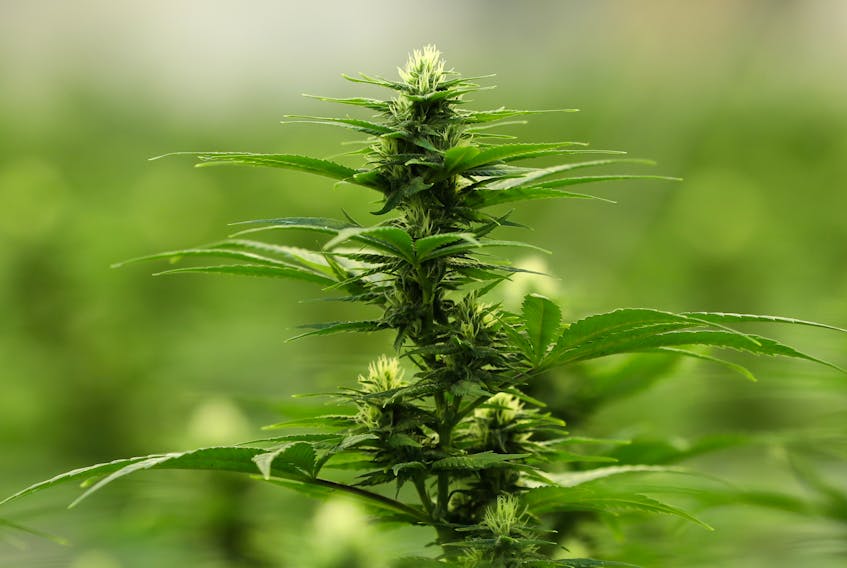Analysts from two of Canada’s major banks have downgraded CannTrust Holdings Inc. and dramatically lowered their target prices for the stock as a result of Health Canada’s investigation into the company for growing cannabis in unlicensed areas and subsequently providing “false and misleading” information to the federal agency’s inspectors.
Bank of Montreal cannabis analyst Tamy Chen downgraded CannTrust from “outperform” — the bank’s highest rating — to “speculative,” and slashed her target price to $6 from $11.
Royal Bank of Canada — which was one of the lead bookrunners on a US$200 million public stock offering by CannTrust in April — also downgraded the company, from “outperform” to “perform,” and reduced their target price to $5 from $13 in light of the concerns over the company’s non-compliance at its Pelham, Niagara greenhouse facility.
In a Monday evening note, RBC analyst Douglas Miehm wrote that while the extent of the problems in Pelham came as a surprise, “more concerning to us was that we felt management was not able to fully explain the events leading up to the notice and resultant implications.”
In an interview with the Financial Post, CannTrust chief executive officer Peter Aceto would not provide specifics on what exactly happened at its Pelham facility between October 2018 and March 2019 that resulted in Health Canada’s seizure of 5,200 kilograms of cannabis planted in five unlicensed rooms.
Aceto said the Vaughan, Ont.-based licensed producer was hiring a third-party compliance firm to aid in a “root-cause analysis” to understand what led to the non-compliance, and would continue growing “quality” cannabis in both of its fully-licensed facilities in Vaughan and Niagara.
“It is unclear how the company would have commenced cultivation in unlicensed rooms and we are surprised by this development and the inability of CannTrust’s internal operation controls to prevent this,” Chen wrote in a note.
“It is unclear what Health Canada could decide with respect to the status of the affected inventory and finished products that were sold to the market. As a result, we are downgrading the stock,” she added.
CannTrust’s stock lost 20 per cent of its value on Monday, and continued its sell-off Tuesday morning — within an hour of morning trading, the stock had already dropped a further six per cent.
It is not, however, the first sell-off the company has experienced. After a less-than-stellar earnings report at the end of March, CannTrust’s stock began a steady decline from a high of almost $13, dropping to the $6 range over the course of three months.
“The company is unlikely to have product available for sale from Pelham until Q4/19, forcing it to source from other LPs. Given the high costs in the B2b channel, we believe CannTrust’s margins could face significant pressure,” Miehm wrote.
In addition to the 5,200 kilograms of cannabis placed on hold by Health Canada, the company is voluntarily holding an additional 7,500 kilograms of dried cannabis equivalent for Health Canada inspection, and could face a potential recall of shipped products that were grown in unlicensed rooms.
In an emailed statement to the Post, Health Canada confirmed that it conducted a surprise inspection of CannTrust’s facility in Pelham on June 17 and subsequently returned to the facility on July 3 and 4 where inspectors “hand-delivered the report and seized 4,327 kilograms of implicated product and obtained samples for further testing.” The company has until July 18 to respond to Health Canada’s non-compliance inspection report.
“Based on our initial conversations with Health Canada, we believe that a revoked licensed and/or destroyed product while possible, are unlikely. The agency has historically suspended licences when LPs were found to source/divert product from/to an unregulated channel. In our view, the CannTrust situation does not appear as dire as these scenario(s), and thus we believe the company should be able to maintain its LP status,” wrote Miehm.
In February, Health Canada suspended the licence of Winnipeg licensed producer Bonify after the company was found to be selling product it had obtained from the illicit market and failed to comply with good production practices.
• Email: [email protected] | Twitter: VanmalaS
Copyright Postmedia Network Inc., 2019
RELATED
- CannTrust shipped 'some' unlicensed cannabis to provinces, CEO confirms
- CannTrust plunges as company faces shortages after Health Canada finds greenhouses non-compliant









